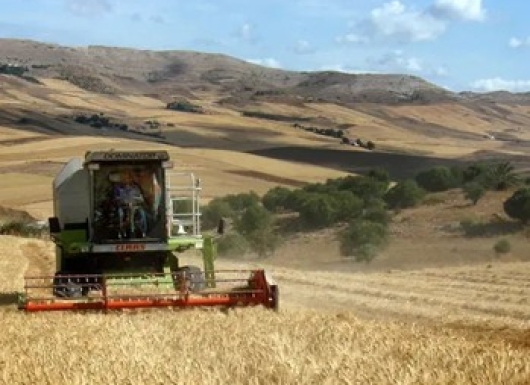Submitter: (ICARDA)
Machine-harvestable chickpea and lentil varieties have been developed to address the growing challenge of labor shortages and high harvesting costs. These breeding lines exhibit robust traits such as tall, erect stature, improved standing ability, higher first pod height, and resistance to pod drop and shattering, making them suitable for direct mechanical harvesting. They are disease-resistant and outperform conventional varieties by 10-20% in terms of yield.
Notable recent releases include:

Suitable for arid and semi-arid regions. Existing and potential regions include India, Pakistan, Bangladesh, Ethiopia, Turkey, Morocco, and Lebanon.
These MH lentil and chickpea varieties have demonstrated higher yields than traditional varieties (10-20% higher yield), an erect growth habit, greater height of the first pod, reduced pod drop, and shattering with negligible yield loss.
These machine-harvestable chickpea and lentil varieties are low-cost, highly adaptable, and ready for integration into diverse farming systems, making them ideal for large-scale adoption. Their compatibility with standard mechanical harvesters reduces labor dependency and operational costs, addressing a significant barrier for farmers in both smallholder and commercial settings. To ensure successful scaling, it is essential to invest in capacity building and farmer training on mechanized harvesting techniques, ensure timely access to quality seed, and implement targeted awareness programs. Strong public-private partnerships, demonstration plots, and supportive extension services will further accelerate adoption and maximize impact across regions facing labor shortages and rising production costs.
Dr. Shiv Kumar Agrawal,
sk.agrawal@cgiar.org
M: +91 8375049950